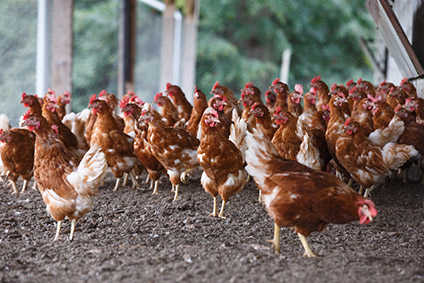
The European Commission today (21 November) urged EU member states to “remain vigilant and enforce bio-security measures”, following outbreaks of bird flu in poultry and wild birds across Europe.

Discover B2B Marketing That Performs
Combine business intelligence and editorial excellence to reach engaged professionals across 36 leading media platforms.
However, a Commission spokesman for health, food safety, environment, maritime affairs and fisheries told just-food there is as yet “no official confirmation” of any internal restrictions being placed on the trade in poultry between EU member states.
The spokesperson said following the first reported bird flu outbreak in Hungary, which was notified to the Commission on 4 November, “there have been six further outbreaks of highly pathogenic avian influenza (HPAI) of the subtype H5N8 in the same area”.
In total, the spokesperson said there have been 16 confirmed outbreaks of H5N8 in poultry in five EU countries: Hungary, where there were seven; in Germany, where there were also seven; and one in each of Austria, Denmark and the Netherlands.
The virus has also been found, in wild birds only, in seven EU states and Switzerland. Investigations are ongoing. “All affected countries took the necessary measures,” the spokesperson said.

US Tariffs are shifting - will you react or anticipate?
Don’t let policy changes catch you off guard. Stay proactive with real-time data and expert analysis.
By GlobalData“With the exception of Hungary, most outbreaks have occurred in backyard (domestic) flocks, where bio-security levels are generally lower,” the spokesperson added. “Member states have been urged to be vigilant and to enforce bio-security measures to possibly prevent contact between wild birds and poultry by putting poultry indoors.”
The spokesperson said tests conducted by the EU reference laboratory for avian influenza “concluded the virus is still predominantly a bird virus without any specific increased affinity for humans”.





